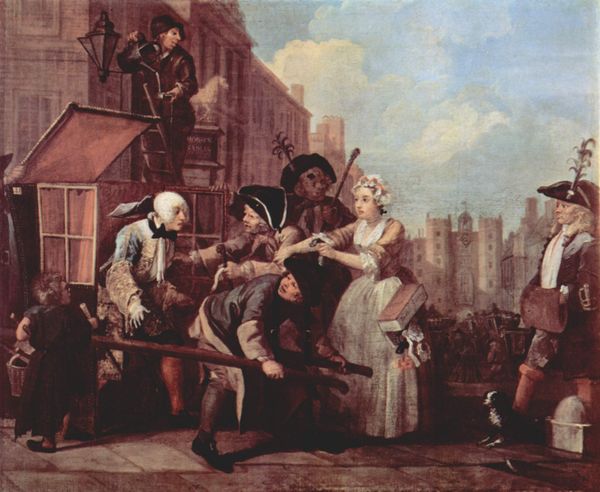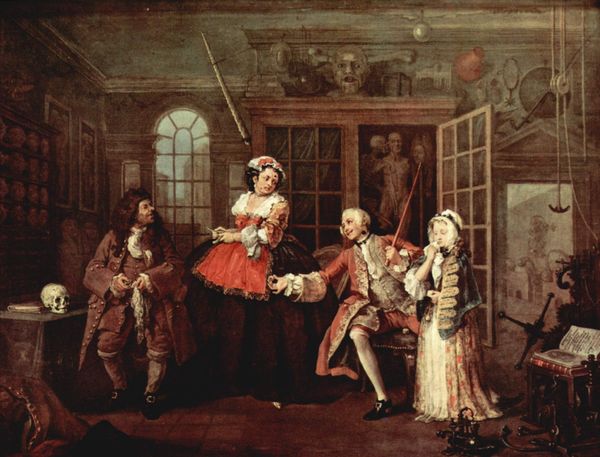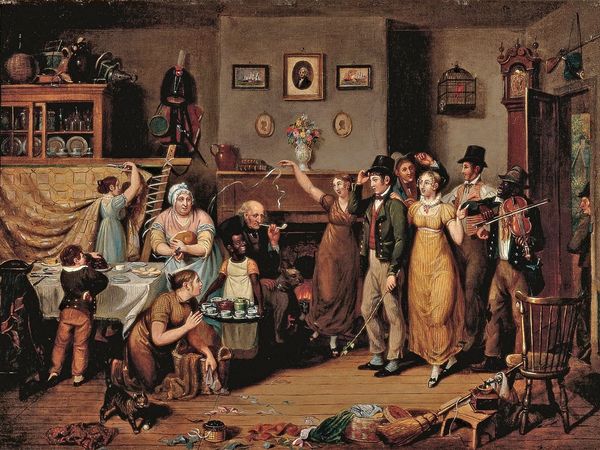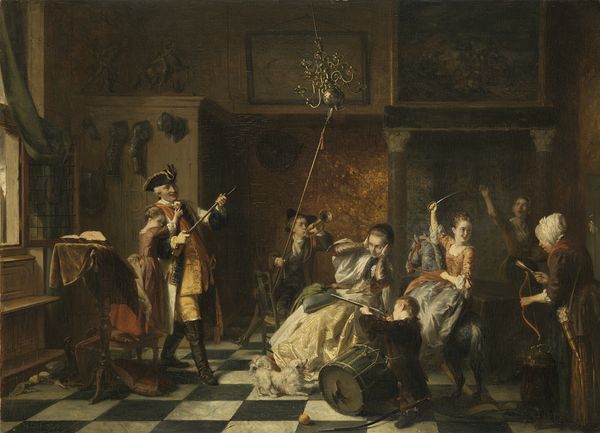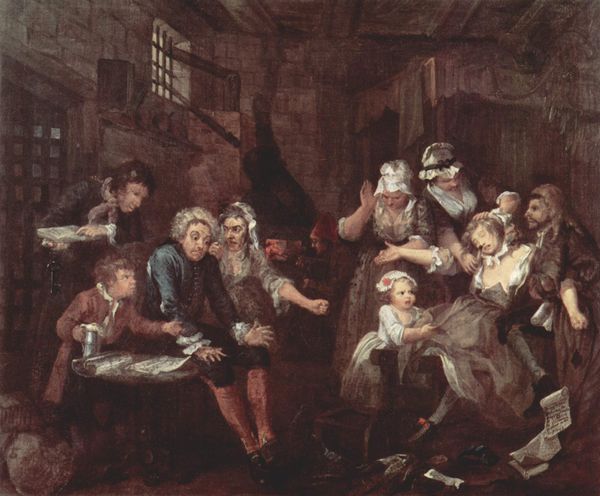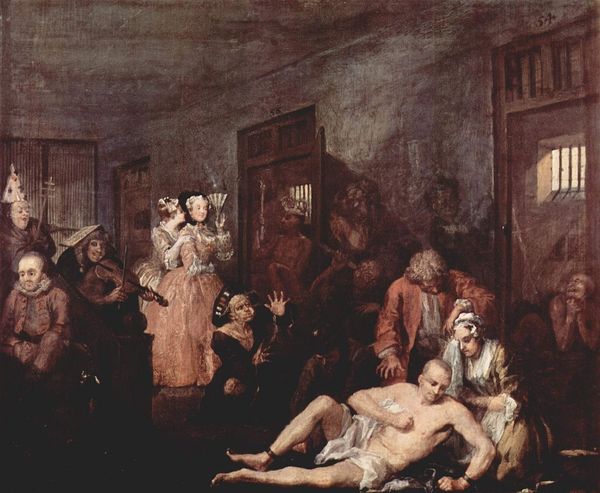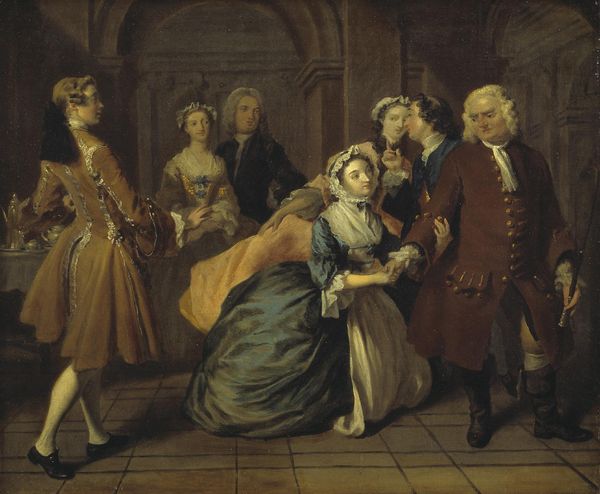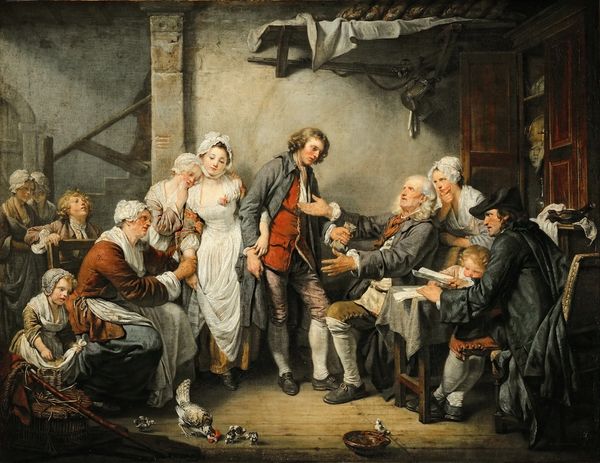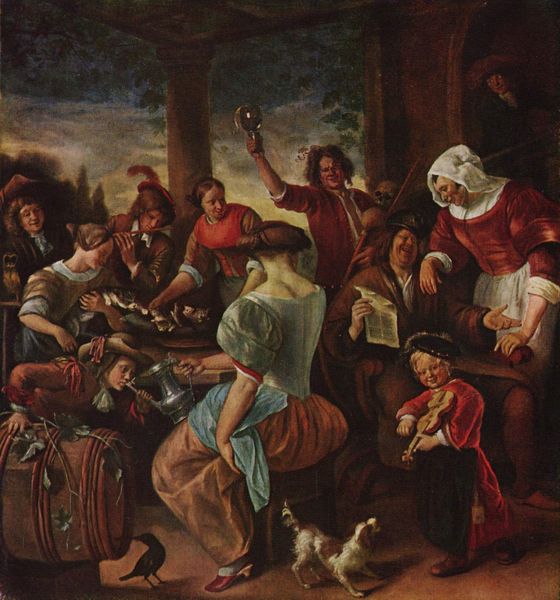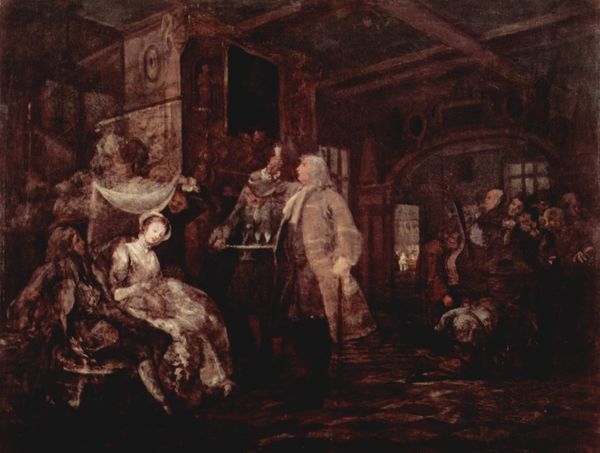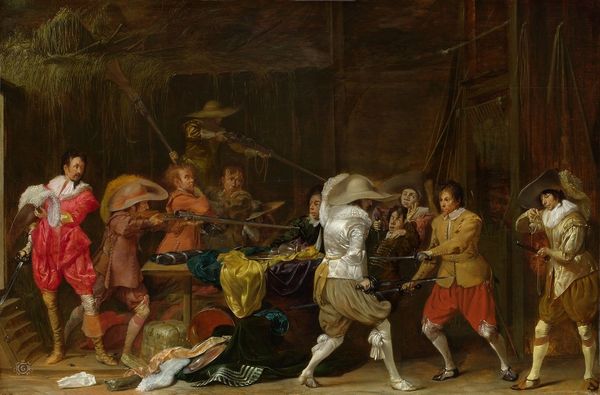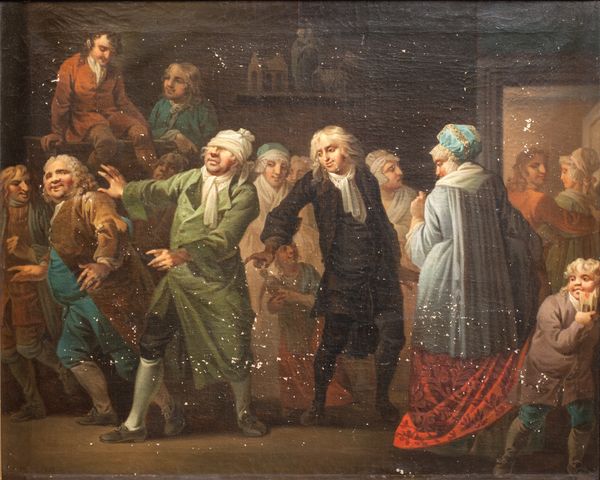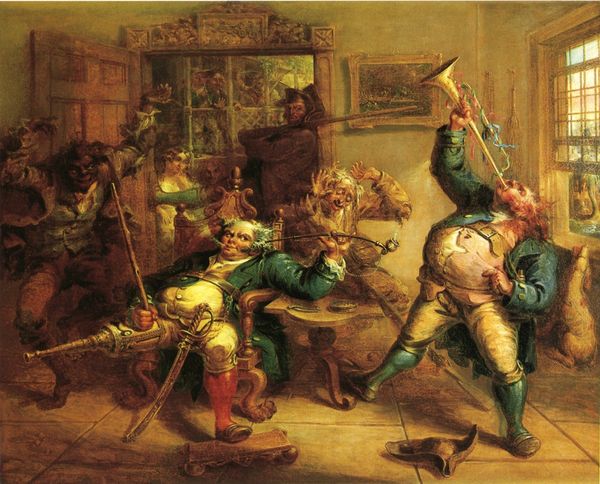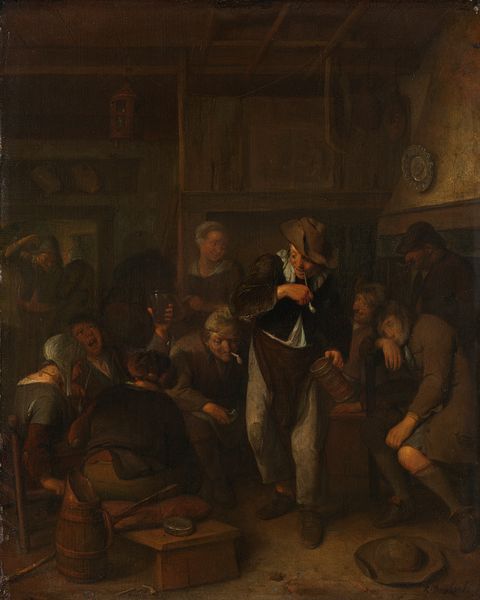
painting, oil-paint, ink
#
portrait
#
allegories
#
allegory
#
narrative-art
#
baroque
#
painting
#
oil-paint
#
ink
#
costume
#
costume
#
genre-painting
#
history-painting
#
erotic-art
Dimensions: 62.5 x 75 cm
Copyright: Public domain
Editor: So, this is William Hogarth’s “Scene in a Tavern (The Orgy),” created around 1735 using oil paint, currently housed in the Sir John Soane's Museum. The chaotic energy is immediately striking. What can you tell me about how it reflects its time? Curator: Hogarth aimed to do more than just depict a scene; he wanted to critique society. Consider the backdrop: taverns weren't just places of leisure; they were often spaces where social lines blurred and, according to some, morality declined, especially among the elite. Editor: It feels like he’s trying to make a point about… something. I am not quite sure what. Curator: Precisely! Hogarth was deeply concerned with the morality, or lack thereof, within the upper classes. Do you notice how everyone in the painting seems engrossed in their own activities, oblivious to the larger picture? It reflects a society perceived as self-absorbed and decadent. Editor: Ah, like a cautionary tale. Was this a common theme in art at the time? Curator: Certainly. Social commentary became increasingly prominent in art as a reflection of burgeoning middle-class values challenging aristocratic excess. Hogarth tapped into that sentiment. How do you think he uses visual elements to amplify that message? Editor: The disarray… broken furniture, scattered items...it really emphasizes disorder and a breakdown of civility, wouldn't you say? I suppose it is didactic. Curator: Exactly. So, it wasn't just about painting a pretty picture; it was about engaging with and hopefully influencing the viewer's understanding of their own society and its flaws. Editor: It’s fascinating to see how art can serve as a mirror, reflecting not just images, but also social anxieties and moral judgements of the time. Curator: Indeed, Hogarth held up that mirror unflinchingly, compelling his audience to confront uncomfortable truths about themselves and their world.
Comments
No comments
Be the first to comment and join the conversation on the ultimate creative platform.
